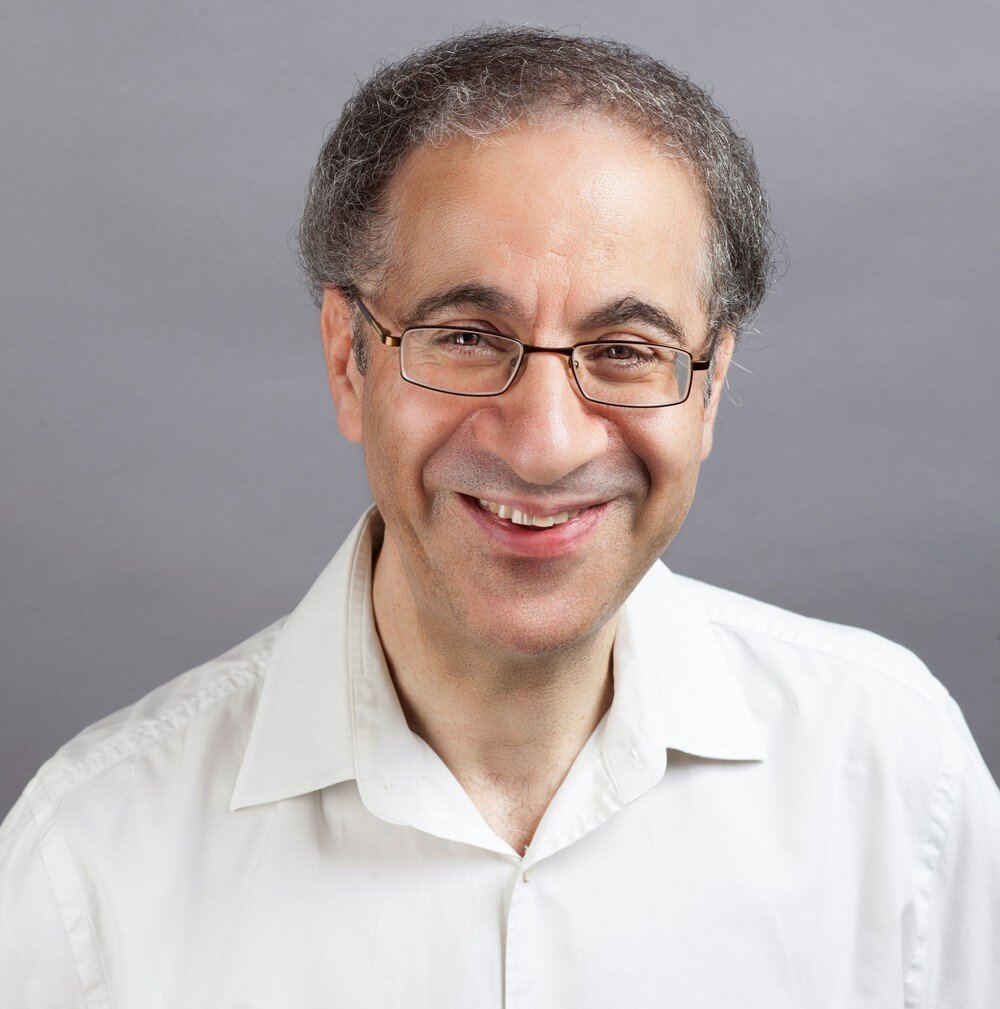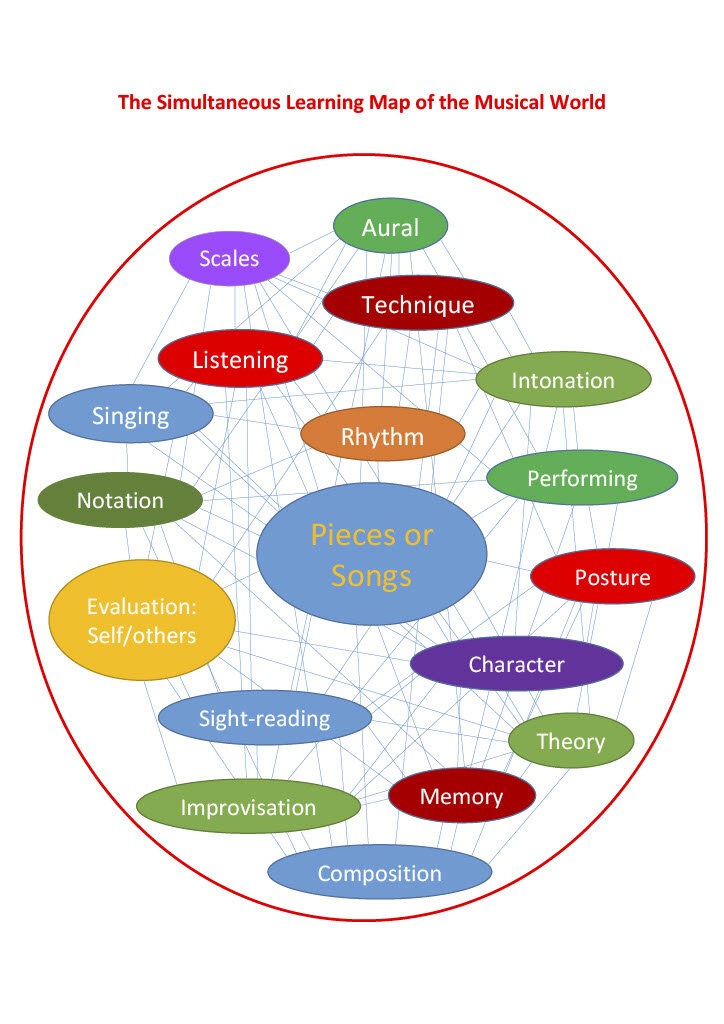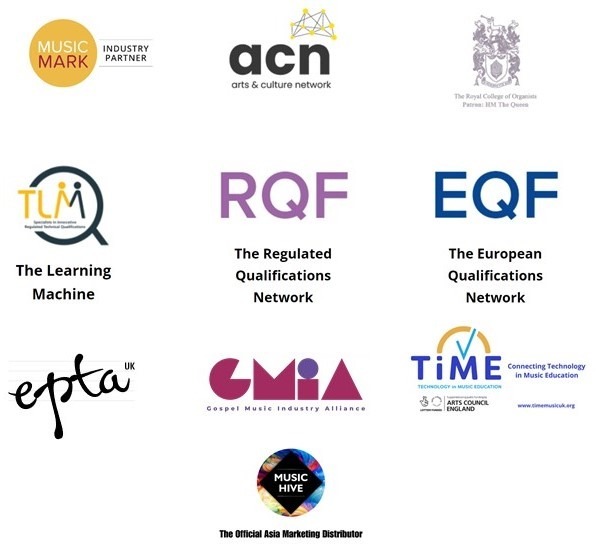
Paul Harris International Music Pedagogue
Music Pedagogy
Paul Harris is literally a modern day legend in the world of music education with over 600 publications to his name and over 1 million sold worldwide with translations into pretty much every language that you can imagine. He travels the world “teaching teaching”, composes, conducts, and performs (clarinettist). He is the ultimate ‘holistic pedagogist’ who teaches lots to those who already have immense experience as teachers themselves.
Music Lesson Simultaneous Learning
Paul’s teaching method is entitled “Simultaneous Learning” and is entirely holistic in that it starts from a brainstorm of musical skills (extensive brainstorm). All these skills are incorporated within music lessons (not necessarily all within one lesson I might add) and contribute to a holistic course developing the “whole” musician.

Paul discusses how he started out observing many teachers and began to understand what constitutes good teaching. He views teachers, teaching in the right way, as the most important people about and that the next generation should also go a step beyond the current.
Making Connections in Music Lessons
Paul discusses technique and many lessons that take a printed copy as a graph that says “that represents this note which you play with this finger”. Paul counteracts that with the concept that every lesson is a “journey of discussion” travelling from one area of his mind-map to another making different connections (almost in a neuron firing and connecting way). When we make these connections students ‘get it’, they are less likely to ‘get stuck’ or find a block and they are more likely to have a life-long journey enjoying and learning music, less likely to given up.
Technique in Music Lessons
Paul also discusses teaching as an imaginative approach, with a less ‘set mindset’ or technique-only based mindset. Paul discusses that the purely technique based approach can lead to people getting stuck and not knowing a way forward.
He gives a great example of a student who can’t play “staccato”. He asks first of all, is it not technical, but is it that they aren’t hearing the detail in the same way? Could the student then improvise with staccato? Then, having taken a different route, could they return to the piece? Different connections have been made and the teaching strategy has been to explore other techniques by thinking ‘outside the box’ instead of going in a straight line, purely technique based.
Teaching Expression in Music Lessons
We then discuss expression and Paul makes a very interesting observation that during adolescence some students find being expressive quite difficult simply because of the stage of life that they are at. He even describes a crescendo as difficult for some people at this stage of life. Paul discusses that if the entire ‘brain space’ is taken up with reading notation, getting notes/rhythms right, working on a staccato or similar, that the idea of enhancing expression is not possible. With the right teaching pace, expression can be incorporated because the student is allowed processing time. A simple task such as “let’s take one phrase with a crescendo” is given as a starting point. Paul talks about ‘leading to’ a particular moment, creating direction in a phrase or section or even piece. He also discusses that the student needs a certain level of confidence in where they are at in order to be ready to engage with enhancing expression.
We even get to discussing whether or not we could perform one note “with the character of the piece”. Whether it could be played the opposite to the character of the piece and so on.
3 Tenets to Simultaneous Learning
I ask Paul about applying his thoughts to choirs. He discusses that others have applied it to instrumental ensembles. He then presents 3 tenets or principles at the core of Simultaneous Learning to illustrate his points:
(1) Understand the ingredients of the piece or song that we are learning – key, rhythms, expression, markings etc
(2) Make connections – teaching through connections within the ingredients via the mind-map
(3) Pro-actively setting up tasks for a lesson based around the ingredients and connections.
The latter point is illustrated on a scale or continuum or spectrum from reactive teaching to pro-active. Much music teaching is “you play, I’ll tell you where you went wrong”. Of course, there can be an element of reinforce points that need improvement, but the method is more pro-active than reactive.
Long Term Learning in Music Lessons, Choirs and Ensembles
With the example of a choir singing a sixth interval out of tune, Paul says rather than singing, “you sang that note wrong”, why not create an exercise singing sixths. Then the interval is more likely to be correct for the long-term future. Simply correcting the interval may just correct it for that moment in time and it may return as an error later on, correcting in a ‘short-term way’.
Finally, the “journey together” between the teacher in the student is something at the heart of what Paul does that I have observed in his work.
Music Educational Publications
If you are interested in Paul’s publications, visit Faber, his publisher, where you can find out much more: https://www.fabermusic.com/we-represent/paul-harris
Music Lessons Online or Face-to-Face in-Person
(Yarm, Teesside, UK)
If you would like to travel the journey with me, I would love to be your guide! Dr Robin Harrison PhD BMus(Hons)/GradRNCM FNCM ARCO LTCL DipLCM PGCE(QTS)
Classical Piano www.the-maestro-online.com/piano
Jazz Piano www.the-maestro-online.com/jazz-piano-lessons
Rock Pop Piano www.the-maestro-online.com/pianolanding
Classical Singing www.the-maestro-online.com/singing
Musical Theatre www.the-maestro-online.com/musical-theatre-singing-lessons
Pop Vocals www.the-maestro-online.com/popvocals Beginner organ www.the-maestro-online.com/organgsta
Advanced Organ www.the-maestro-online.com/organ
Choose your plan
All Courses
-
All Piano Courses
-
All Organ Courses
-
All Singing Courses
-
All Guitar Courses
All Courses + Masterclass
-
All Piano Courses
-
All Organ Courses
-
All Singing Courses
-
All Guitar Courses
-
All Masterclasses


